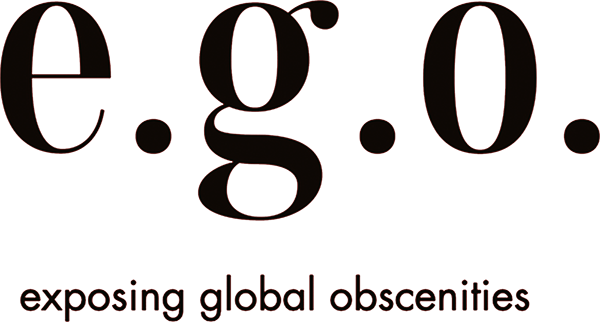
Humans are uniquely prone to body image issues. As visual and social creatures, the way we see ourselves is linked in complex and systemic ways in the way we see each other and the world around us. This may sound like a vague explanationas to why body image issues are so prevalent, a brush offeven, but there is a critical truth to this concept. Whilst body image issues have certainly become more prevalent and seem to be having more severe consequences, whilst also becoming apparently more difficult to dislodge, it is by no means a lost battle or an inevitable consequence of our psychological biology. In many ways, the fight for positive body imagery is the last battle ground, the last frontier of social evolution. Even supposedly progressive shows and people will still on occasion resort to fat shaming as an “easy laugh”, and the way we see overweight people specifically still seems to be tied to some moral-ethical judgement. It is important that as we develop our argument against this final bastion of bigotry, we dissect the issue comprehensively and understand the mechanisms that produce this type of thinking and behaviour, an endeavour already begun by the body positivity movement.
Body Image and (Mental) Health
The comorbidities of body image based mental health problems are at this point, fairly well understood. We understand that the key drivers of body image derived mental health issues are gender and race/cultural denomination, in that order. 63% of eating disorders are in found in people identifying as women and a staggering 80-85% of those suffering from bulimia nervosa or anorexia nervosa being women, a statistic that has likely been the lived reality of a woman in your life. We understand that these issues also may disproportionately affect trans-identifying people. We understand the ravaging effects of eating disorders of all volumes and forms on the body; strong correlation with sleep issues, musculoskeletal complications, digestive issues and an entire battery of reproductive issues that appear to have specifically detrimental health outcomes for those with female reproductive organs. Despite this knowledge of what it does our bodies, our minds and our communities, how have we not only been unable to unstick body image issues, but we appear to have lost ground to them? Body image issues affect larger portions of the population each year and at younger and younger ages with a 6-fold increase in reported eating disorders since the 1990’s.
Body Image and Social-Media
It’s fairly obvious how this issue has become so ascendant. The rise of social media has coincided with this rapid increase in body image issues. Social media has had the following tangible effects on our perception of self; we can see any number of attractive people from all over the world, the algorithms that dictate the feeds we are given favour these people so we see more of them, these people are also given unprecedented editing power over their image and the opportunity/time to endlessly manicure and manufacture these images and finally, trends encourage us to emulate these people, driven by our inherent desire for internal-external conformity. The effect that this meta-structural shift in the way we interact with each other has had on our perceptions of self-have been nothing short of catastrophic and have caused, at times, irreversible damage to our minds and the way we see the world. Even assuming we could instantly turn off the tap of this toxic mix of unattainable beauty, highly selective imagery and perpetually manicured looks, there is so much work to do to unravel the complex social-biological tangle caused by social media.
Body Image and Where’s Next?
Despite all of this doom and gloom; being uniquely predisposed to body image issues, its prevalence in already marginalised groups (women, gender non-conforming and indigenous peoples) and its stickiness only made worse by unchecked social media aggravating all of the above, there is a movement that seeks to undo these effects with solidarity and acceptance at its core. The Body Positivity movement promotes body image health by recognising the link between gender, socioeconomic status, race and many other intersectional elements that make up our personage. Despite populist slandering, the body image movement does not promote any specific body weight as being superior or healthier, rather, taking an agnostic stance on weight and focussing on the elements of health that actually contribute to living a more holistic and fulfilled life, not only ignoring the number on the scales, but the image on the app and attempting to reframe these images for what they really are, unattainable and extremely damaging fictions. Body positivity teaches that the best thing about our bodies isn’t how we’re seen by others, but how we see ourselves and the way this vision expresses the imperfect reflection of society that is truly representative of what bodies are, rather than the perfectly manicured and selected image presented by social media. Through this ‘beauty neutral’ methodology of seeing the world, body positivity hopes to change the way we build our notions of beauty, to become either agnostic about it or reconstruct it in a way that promotes true health and all the ways that body shapes manifest in reality.
The Body Positive is a nonprofit organization that teaches people to listen to their bodies, learn and thrive. Their ultimate goal is to end the harmful consequences of negative body image: eating disorders, depression, anxiety, cutting, suicide, substance abuse, and relationship violence. They offer courses and trainings that allow people to become Body Positive and bring life-changing work to the youth and adults in their schools and communities. If you are able to make a contribution, click here to donate.
REFERENCES
https://mindwise.org.au/how-does-body-image-affect-our-mental-health/#_ftn8
https://www.sciencedirect.com/science/article/abs/pii/S1740144522000638?via%3Dihub
LEARN MORE ABOUT THE SOCIAL CAUSE
TedTalks :
TED- Body Positivity or Body Obsession? Learning to See More & Be More
TED- Body Image: Not Just About Your Body
TED- Embracing Your Critical Voice: The Gateway To Self-Love
TED- Let’s unpack our fear of fatness
Book :
Connie SobczakEmbody- Learning to Love Your Unique Body (and quiet that critical voice!)

